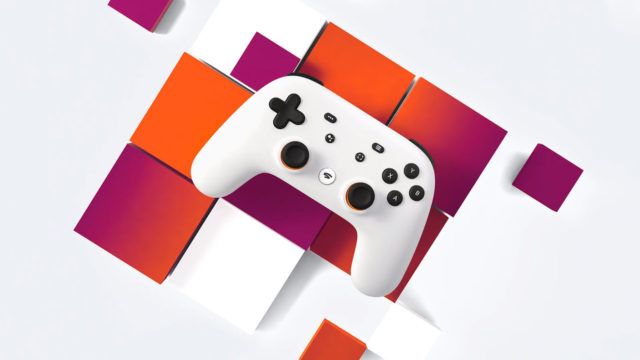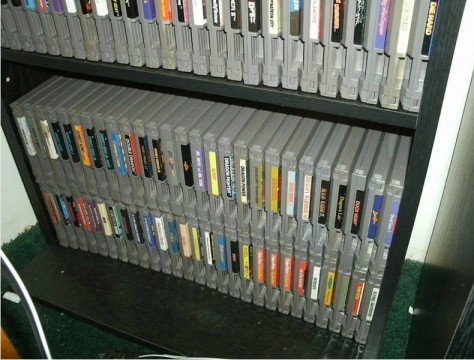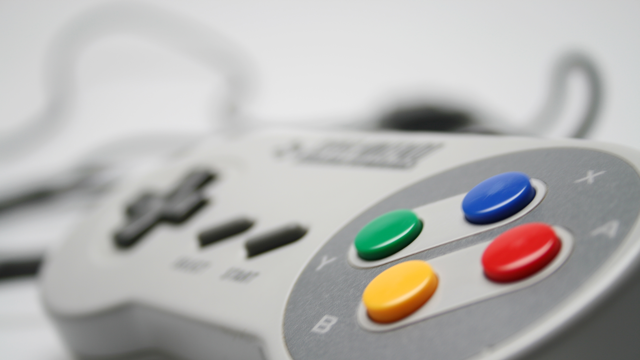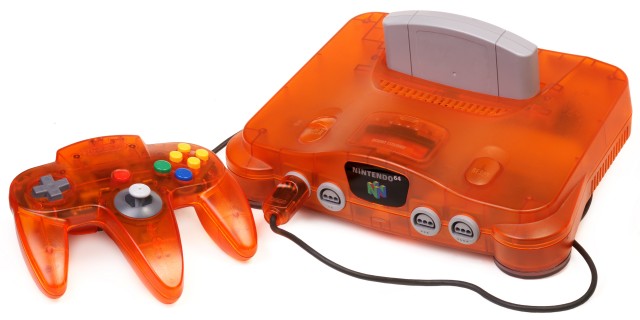Google Stadia was given an official unveiling to the public at GDC 2019 in San Francisco. The project had initially bowed as a closed beta dubbed Project Stream back in 2018, where users were able to play Assassin’s Creed Odyssey utilizing the tech that would ultimately come to power Stadia. While it isn’t the first of its kind, Stadia is being promoted as the “future” of gaming: console-level experiences streamed via any web-enabled smart device that can run the Google Chrome web browser. A max resolution of 4K HDR, 60 FPS, and 5.1 surround sound are possible. By all accounts, it’s pretty amazing stuff— from a purely technological standpoint.
I have a relative whose significant other had passed away in the ’80s. He owned an NES which made its way to my grandma’s house and started me, and eventually my sister, on our paths to being lifelong gamers. One of my earliest memories in life, not even just of playing video games, but of life itself, is of Tetris being played on that NES. By the time I was in my late teens and going to college, my aunt had allowed me to take that NES, complete in its box with all the games, and add it to my collection. It’s an item that I cherish for a variety of different reasons, not the least of which being the personal, familial ties that it has.
Now, imagine this same story in 2019 and it’s a Google Stadia controller as opposed to an NES. What legacy, what significance will the ephemeral, intangible world that streaming represents have when passing things down from one generation to the next? What sort of bonds between fathers and sons, mothers and daughters, will be built when rather than sharing cherished heirlooms, people are instead passing along logins to subscription services? “That’s right, Timmy, 30 years ago your grandad logged into that same account and streamed Destiny 2 for the first time. Oh, I can remember the utter joy he felt when he upgraded to platinum membership and the picture quality got really good.”
That scenario doesn’t quite seem to hold the same weight as someone getting their aunt’s old Sega Genesis passed down to them, does it? At least, that’s how I tend to feel when I look at the march towards an all-digital future that humanity seems intent on. Despite my objections, I do try to keep an open mind about these things, and so I’ve sought out and continue to seek out other people’s opinions on this issue. It was during one of these talks that a friend of mine pointed out that the sort of emotional attachment and fond memories I have towards my NES could be possible for someone whose first video game experience is Stadia and its controller. I suppose there’s nothing mutually exclusive about these two things. As I grapple with my distaste for what Stadia represents, though, I think my objections are more multifaceted than I initially took them to be.
Streaming. Digital-only content. Even Nintendo fans aren’t immune to this. Nintendo has openly discussed that it’s currently looking internally into how the company might utilize the technology. We’re already at a point where the NES catalogue of games is digitized and locked behind a paywall— in its case, the endless monthly/annual fees of Nintendo Switch Online. I can pass my NES cartridges and console down to anyone I want, but I can’t do that with a bunch of ROMs that are tethered to an online service that will eventually be replaced. At least games that are downloaded to a hard drive are somewhat physically present; no corporation can come and shut off my access to everything I downloaded to my Wii U, for example. The NES library on my Switch, however, has to get a weekly check-in from the Internet fairy that works for Nintendo, and once Switch is replaced… well, what happens to those games, then? Do I get to keep them? Or do I get told that I have to buy the new console and keep playing them on its online service?
The problem, I feel, is monetization. Every entertainment company from Disney to Apple is trying to find a way to stop letting consumers buy things and, instead, make them rent. Really, that’s all Hulu, Netflix, Amazon Video, Apple Music, and all of the other streaming platforms are: glorified rental services. Despite the fact that the overwhelming majority of content that users enjoy is stuff that they’ll never stop wanting to watch. Look no further than the millions of views that shows like Friends and The Office, two series that ended years ago, continue to garner. Why keep paying endlessly to enjoy content that you’ll never want to stop hearing, watching, or playing?
I’m no Luddite trying to push a nihilistic dystopian view of the future, but I am trying to have an honest conversation about the genuine problems facing consumers. Streaming and all-digital content represents an utter loss of consumer control. Returning to Google Stadia for a moment, I keep coming to this same thought— people will be paying $60 for software just like they already do on top of an additional monthly fee to access a console that they will never, ever own. Even the game itself is dubiously the “property” of the consumer. How can they “own” something if it’s in the cloud of a corporation? Once the servers shut down, the only “system” that the game can be played on is also gone, rendering the software itself useless.
It’s an issue that extends to Nintendo’s mobile offerings. Many of them are fun, solid experiences, but they’re also completely dependent on internet connectivity and Nintendo’s servers. Pokémon Duel, one of those mobile titles, is shutting down at the end of this month. Every cent that users spent on the game will, on October 31, be rendered useless. The shutdown notice on the Pokémon website even notes that, while some functionality will remain once the service ends, that “[it’s] possible that you will become unable to use the Library function due to OS version upgrades, device change, or other issues.” Bye-bye. Gone.
I’m not naive; there are countless ways that old games become unplayable. Yet, I think there’s a big difference between a console breaking down, for instance, and simply being told that the company streaming to me has gone belly-up, moved on to new/different content, or is simply unwilling to continue to allow users to play, watch, or listen to something. As I pointed out above, things in the cloud are of suspect ownership to the consumer, yet consumers are in waves forking over cash for the right to click “login” on a phone or a computer and access something that’s only theirs until access gets cut off. Ask those who forgot to transfer their UltraViolet movies over to another service at the end of July how they feel about their purchases now versus two or three years ago. Suddenly, all those bits of data seem like so much lint and dust.
There are legitimate reasons why digital-only can be a good thing. It lessens the impact on the environment to not print on paper or produce plastics for game cases. It cuts back on space for people who don’t have a lot of shelves or the means of storing a bunch of games, books, CDs, etc. I can’t pretend that these justifications are (ironically) immaterial. I love technology and how it can propel humanity in different directions that people otherwise might never have been able to go. I cannot and will not, however, ignore that ultimately streaming and all-digital media is in the hands of powers that the everyday person has minimal sway over. Apple, Google, Nintendo— all of these corporations are out for profit. Some, like Nintendo, I think are fairer to consumers, but at the end of the day every company is in service to two things above all: fiscal gains and shareholders.
The second it becomes financially burdensome to support something, companies bail. Look no further than the impending closure of the YouTube service on PlayStation 3 as one of countless instances of this reality. Nothing lasts forever, but I can almost guarantee that you’ll get a lot more mileage out of your old Nintendo 64 and copy of Ocarina of Time than your Stadia controller and its subscription service. In the world of design, planned obsolescence has been a part of making everything from shoes to fashion for decades. Your phone is made to become obsolete after a couple of years. Your car. Your clothes. And in the case of video games, your console. With streaming, though, companies like Google and Sony have glommed onto the fact that it’s easier and possibly even more lucrative to not even make a system that eventually breaks down or goes out of fashion— now they just want to get your money every month and convince you that you’re better off with them having every physical component under their control, with the exception of that shiny controller in your hands. I’m sure it’s next on the list.
I know a lot of people feel different ways about this issue and that how a person spends their money isn’t anyone’s else’s business. At the same time, I want to caution everyone to at least think about where we’re all heading. The Microsofts and Apples of the world don’t have your back. Even seemingly benevolent entities like Nintendo are going to prioritize itself over consumers. Don’t let anyone else, especially companies, dictate the terms of how you consume media, where you consume media, and when it’s time to take that media away. I suppose if nothing else, think about the cherished items and heirlooms in your own home and how different your life would be if the person who gave them to you only had the screen of a phone or TV with a login window to point to, instead.




 ShareThis
ShareThis









